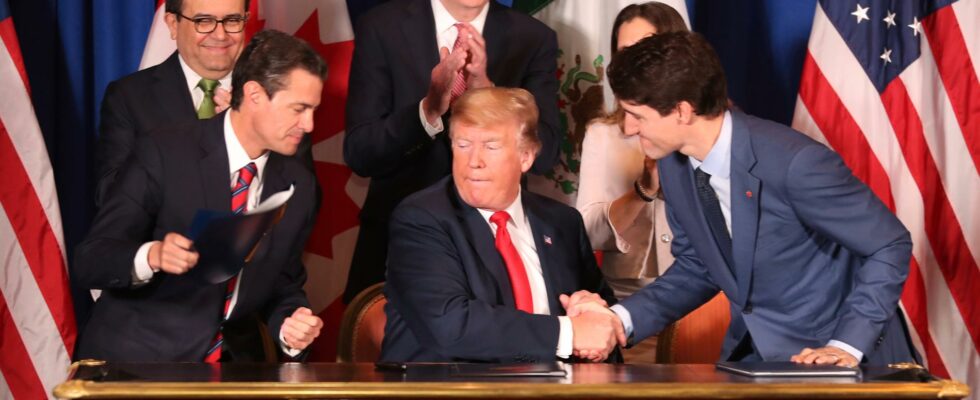unsaveSave
expand-left
full screen In 2020, Donald Trump signed a new free trade agreement with neighboring countries Canada and Mexico, describing it as the best the United States had ever achieved. To the left of Trump in the picture is Mexico’s then-President Enrique Peña Nieto and to the right is Canada’s Prime Minister Justin Trudeau. Archive image. Photo: Martin Mejia/AP/TT
Trump’s move on tariffs against Canada, Mexico and China does not come as an immediate surprise.
But if they get rid of them, they can have major consequences, not just for the three countries in particular.
Up to 75 percent of Canadian exports go to the United States, where cars are also a large part. And Canada is the largest external supplier of crude oil to the United States.
– It would be an incredibly big shock to the Canadian economy, but it would also mean that the US is shooting itself in the foot, says Stephen Tapp, chief economist at the Canadian Chamber of Commerce, according to Reuters, about the tariff threat.
The tariffs would also hit American consumers in the form of price premiums on imported goods, he emphasizes.
The tariffs are also expected to hit Mexican car production hard.
Three biggest
Canada, Mexico and China are the USA’s three largest trading partners. Since 2020, the United States, Mexico and Canada have had a free trade agreement that Trump, then president, praised as the best the United States had achieved so far.
According to John Veroneau, who negotiated trade agreements under President George W. Bush, Trump’s move means that the United States is effectively canceling that agreement.
– Unilaterally introducing a tariff of 25 percent obviously means that the agreement no longer applies, Veroneau told the Washington Post.
The US dollar strengthened immediately after the play against both the Canadian dollar and the Mexican peso.
Buckle up
– Fasten your seat belt, says Benito Berber, chief economist at the international asset manager Natixis to Bloomberg.
That there would be threats from Trump was fully expected, but the customs game will, according to Berber, hit the Mexican currency hard.
Several comments on the outcome state that it is a negotiation tactic, that it is not written in stone and certain if it becomes reality. Five years ago, in 2019, during Trump’s first four years as president, he threatened 5 percent tariffs on Mexico for stopping migrants. A week later, he backtracked and claimed that Mexico had taken action.
He also threatened 25 percent tariffs on Canada, something Canada then described as an existential threat.
Four stormy years
Shoki Omori, chief strategist at Mizuho Securities in Tokyo, argues that the market has pulled too big gears on Trump’s nomination of Scott Bessent, a hedge fund manager on Wall Street, as Treasury Secretary. The market has assumed that Bessent will restrain Trump’s more unbridled outbursts, but in the end it is Trump who rules over fiscal policy.
– It will be four volatile years for global assets, says Shoki Omori.
